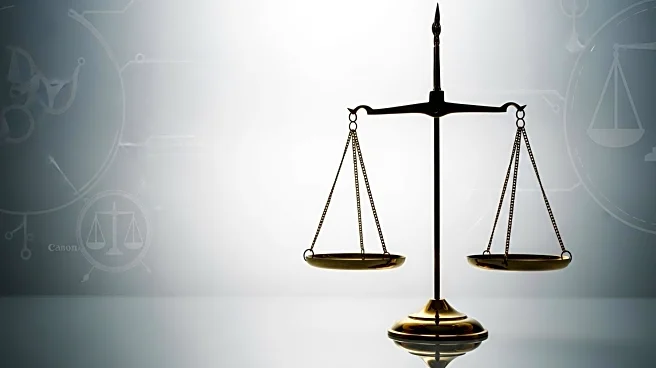What's Happening?
JPMorgan Chase is covering $115 million in legal fees for Charlie Javice and Olivier Amar, who were involved in a $175 million fraud against the bank. This amount is nearly two-thirds of what JPMorgan paid for their student-finance startup, Frank. The legal defense involved 19 lawyers for Javice and 16 for Amar, making it one of the most expensive white-collar defenses in recent memory. The payments were mandated under the Frank merger agreement, confirmed by a Delaware court ruling. Despite being fired for orchestrating the fraud, the court required JPMorgan to advance the legal costs. Javice was sentenced to seven years in prison for falsifying data to inflate her startup's value before selling it to JPMorgan.
Why It's Important?
The case highlights the significant financial burden that legal defenses can impose on corporations, especially in complex white-collar crime cases. JPMorgan's obligation to cover these costs, despite being the fraud victim, underscores the complexities of merger agreements and legal obligations. The bank's attempt to recoup the money as part of a $287.5 million restitution order reflects the challenges in recovering losses from fraudulent activities. This situation also raises questions about corporate governance and the due diligence processes in mergers and acquisitions, potentially impacting future corporate policies and legal frameworks.
What's Next?
JPMorgan is seeking to recover the legal expenses as part of the restitution ordered by the court. However, the likelihood of full recovery is low, as Javice is only required to pay 10% of her post-prison income for 20 years. The bank may continue to cover legal expenses during Javice's appeal. The outcome of these proceedings could influence how companies handle legal obligations in similar cases and may lead to changes in how merger agreements are structured to protect against such financial liabilities.
Beyond the Headlines
The case also touches on ethical considerations in corporate practices, particularly the responsibility of companies to ensure accurate representations during acquisitions. The involvement of high-profile legal teams and the substantial costs associated with defending white-collar crimes may prompt discussions on the accessibility of justice and the disparity in legal resources available to different defendants. Additionally, the case may influence public perception of corporate accountability and the measures companies take to prevent fraudulent activities.










